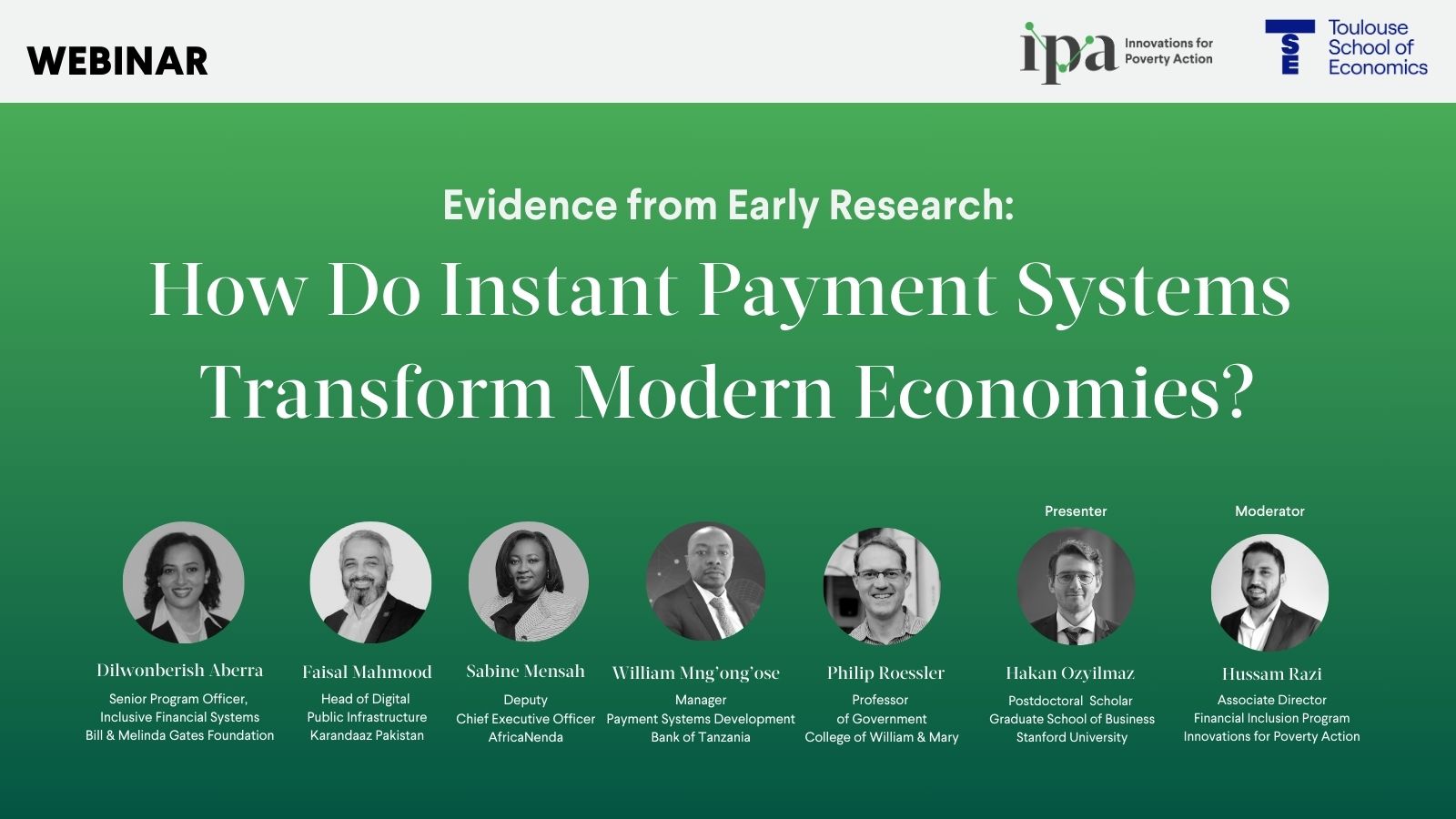Webinar | How Do Instant Payment Systems Transform Modern Economies?

Tuesday, December 10, 2024
9-10AM EST / 2-3PM GMT / 5-6PM EAT
Instant Payment Systems (IPS) are a key component of digital public infrastructure (DPI). These systems are being increasingly deployed both in emerging and developed markets, with a view to transform financial sectors and create positive impact on broader economies. Through features such as interoperability, instant transfers, and real time settlement, IPS can enable frictionless interactions between consumers, small businesses, and governments. This has widespread implications for national financial integration, and consumer and business welfare. However, despite significant momentum around DPI and IPS both, we know very little about how IPS, and by extension DPI, are creating the predicted impact. Results from early research show that IPS have an impact on competition, costs of transfers, financial deepening through expanding usage of more financial services and innovation.
In this webinar, hosted by Innovations for Poverty Action in collaboration with the Toulouse School of Economics, Hakan Ozyilmaz presented evidence from early research on IPS, compiled in a recently published research synthesis. The webinar also brought together policymakers, practitioners, and academics—including Dilwonberish Aberra (Bill & Melinda Gates Foundation), Faisal Mahmood (Karandaaz Pakistan), Sabine Mensah (AfricaNenda), William Mng’ong’ose (Bank of Tanzania), and Philip Roessler (The College of William & Mary)—to discuss some of these findings and other areas pertaining to IPS. The webinar concluded with a Q&A session allowing participants to discuss the findings from the research and engage with the panelists. The webinar was moderated by Hussam Razi, Associate Director of Financial Inclusion at IPA.
View the webinar video recording below:












